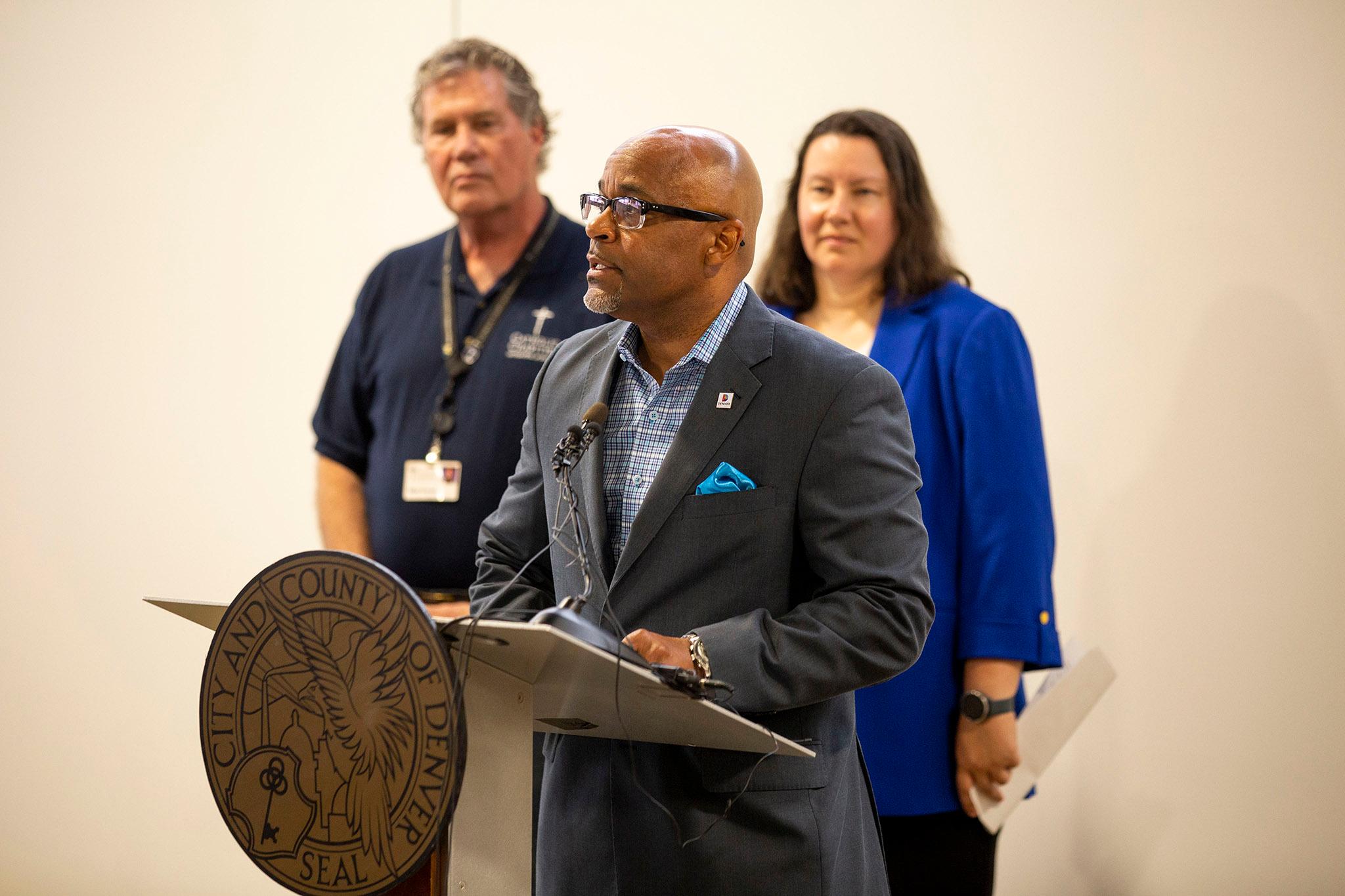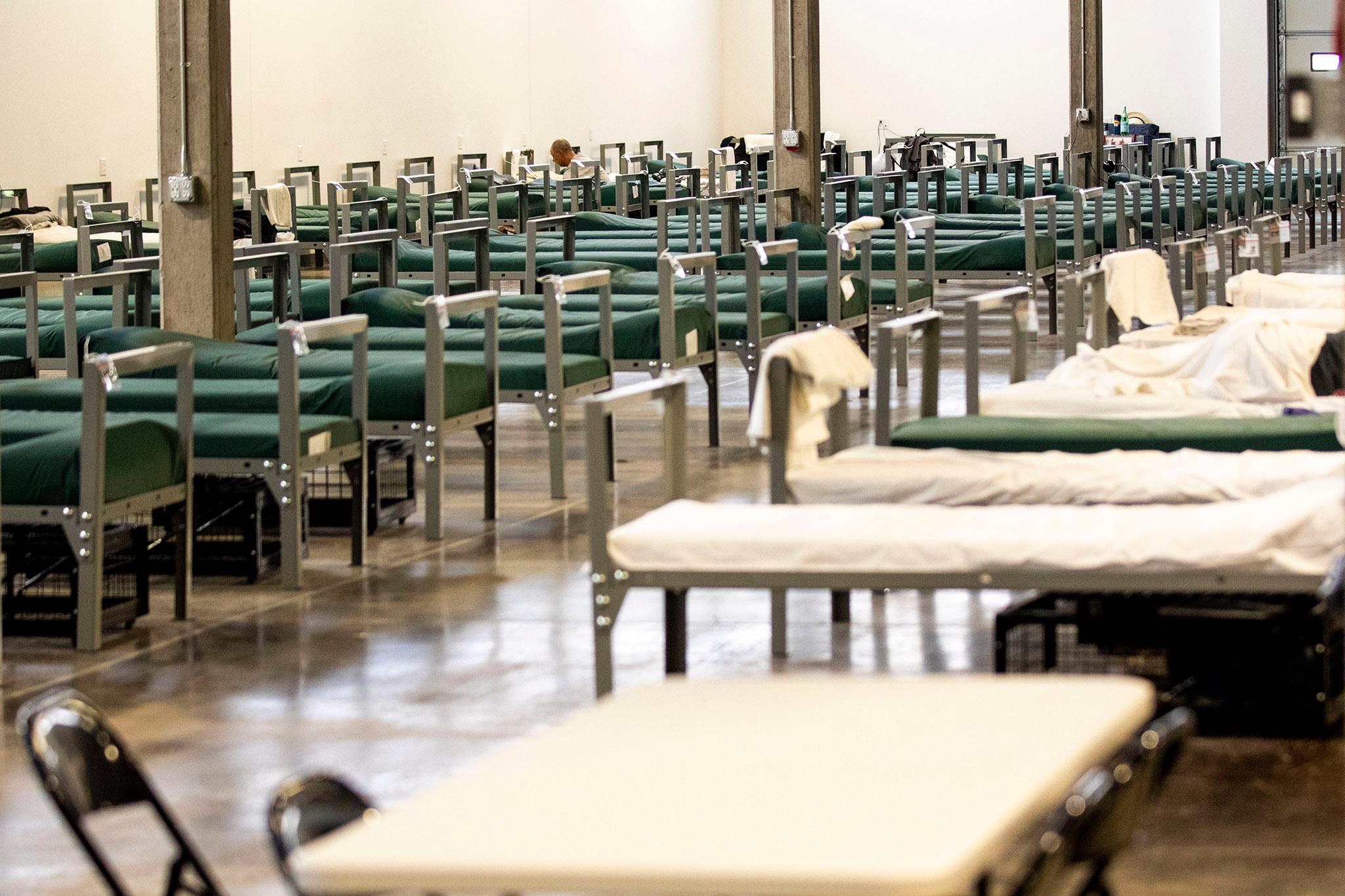Standing in the dining hall of a renovated warehouse serving as Denver's newest 24-hour shelter on Wednesday, Mayor Michael Hancock revealed the city's next steps to combat homelessness.
The multifaceted plan outlined measures like creating more Safe Outdoor Spaces, padding assistance programs and buying hotels and motels to be used as shelter -- but it won't end the encampment sweeps that advocates have protested for years.
"Our COVID response has confirmed that people seek shelter that feels the most like housing," Hancock said. "So when we offered people hotels and motels, we increased the number of people willing to come in off the streets."
Women in particular responded well to shelters that felt more private and safe, and Hancock said the city was able to triple the number of women accepting shelter. The city has put out a call requesting to buy motels, hotels or vacant apartment buildings. But the process will take time.
"There's not been a lot on the market," Denver's Chief Housing Officer Britta Fisher said. "And so we want to procure for those potential sellers... then from there it's, of course, negotiating. And then there's the actual purchase and sale agreement itself. So yes, it does take months to get a motel hotel or apartment building in possession of ourselves or a partner."

In likely the most controversial revelation of the press conference, Hancock said the city would not stop or slow down encampment sweeps, or the forced relocation of people living unsheltered in public spaces. Hancock said the city's latest run of sweeps was not an increase from before the pandemic, although many advocates disagree.
"We have more encampments than we've had ever in the city of Denver," he said. "So are we gonna clean them up? Yes. Have we ordered them to step up the number? No."
Hancock also highlighted the use of Safe Outdoor Spaces, two of which now exist in Denver at Regis University and at Park Hill United Methodist Church. Hancock, who previously opposed these sanctioned tent encampments, said the spaces will "provide basic amenities, sanitation, rehousing support and other services."
City officials hope the Biden Administration will buffer the federal subsidy voucher system, which received a surge of applicants during the pandemic. The program, which is distributed through lottery, only has enough resources to aid one in four applicants in Denver.
The city is also forming a team to help enforce ordinances like park curfews, dogs on leashes and improper scooter parking. Officials said the team members would fill a role similar to that of a park ranger. The measure is an attempt to help prioritize more serious calls and free up uniformed officers.
The city also highlighted their successes in the last year.
"Despite initially having to cut the number of shelter beds in nearly half for social distancing, today, the city's network of shelters serve more than 2,200 people nightly, in a more than 54 percent increase from last March to March 2021," Housing Officer Fisher said. "That is a significant increase in just one year."
The newest shelter on 4600 E. 48th Ave. will provide men and transgender people with three meals a day, laundry services and could eventually add a kennel for pets. The facility can accommodate up to 600 people and has allowed the old shelter next door at 4330 E. 48th Ave. to be converted into a women's shelter with space for up to another 500 people.













